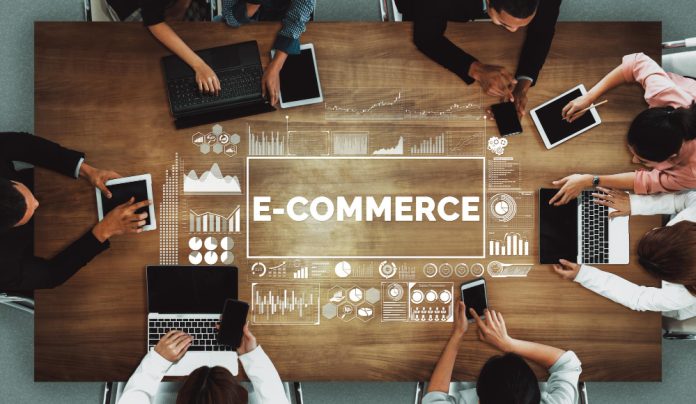B2B e-commerce has been experiencing rapid growth in recent years, and the trend is set to continue. As businesses increasingly shift toward digital platforms, the way B2B transactions are conducted is evolving. In the next five years, B2B e-commerce will undergo significant transformations, driven by technology, changing customer expectations, and global market dynamics. Let’s dive into the future of B2B e-commerce and what businesses can expect in the years ahead.
1# The Rise of AI and Automation in B2B E-commerce
Artificial intelligence (AI) and automation are already revolutionizing various industries, and B2B e-commerce is no exception. Over the next five years, AI-driven tools will play a key role in streamlining B2B transactions, enhancing customer experiences, and improving operational efficiency.
- Personalization: AI will enable businesses to offer personalized experiences at scale, tailoring product recommendations and offers based on customer behaviour and preferences.
- Chatbots and Virtual Assistants: AI-powered chatbots will become more sophisticated, handling complex queries and guiding customers through their purchase journey with minimal human intervention.
- Inventory Management: Automation in inventory management will allow businesses to track stock levels in real-time, predict demand, and manage supply chains more efficiently.
2# Increased Integration of Digital Payment Solutions
The next five years will see a broader adoption of digital payment solutions in the B2B space. As businesses seek faster, more secure, and cost-effective ways to process payments, digital payment methods such as cryptocurrency, blockchain, and digital wallets will gain traction.
- Blockchain for Secure Transactions: Blockchain technology will ensure transparency, reduce fraud risks, and provide a secure, tamper-proof method for processing B2B transactions.
- Cryptocurrency: Businesses are gradually becoming more open to accepting cryptocurrency as a payment method, especially in global trade where traditional banking systems can be cumbersome and costly.
- Mobile Payments: Mobile payment systems will become more widely adopted, allowing businesses to process transactions anywhere, anytime.
3# The Growth of Omnichannel B2B Experiences
B2B buyers are increasingly expecting a seamless omnichannel experience, similar to what they get in B2C e-commerce. In the next few years, businesses will invest in creating consistent, integrated experiences across multiple channels.
- E-commerce Platforms: Companies will continue to enhance their e-commerce platforms to provide a smoother and more intuitive buying experience, whether through a website, mobile app, or social media.
- Integration Across Channels: From customer service to order tracking, businesses will connect various touchpoints, ensuring that customers have a unified experience, no matter where they interact with the brand.
4# Greater Focus on Data Analytics and Insights
Data has always been a powerful tool for businesses, but its importance will only grow in the next five years. B2B companies will invest heavily in data analytics to drive smarter decision-making.
- Predictive Analytics: Companies will increasingly rely on predictive analytics to forecast trends, understand customer behaviours, and optimize their strategies.
- Customer Segmentation: Using data, businesses will segment customers more accurately, allowing for hyper-targeted marketing campaigns and improved customer retention rates.
- Performance Tracking: Real-time analytics will allow businesses to track performance at every stage of the customer journey, helping them make adjustments and improve conversion rates.
5# The Shift to Sustainable and Ethical E-commerce
As global awareness of environmental issues rises, sustainability will play a significant role in the future of B2B e-commerce. Businesses are becoming more conscious of their environmental impact and are prioritizing sustainable practices.
- Eco-friendly Packaging: Companies will explore packaging solutions that reduce waste and carbon footprints.
- Green Logistics: The demand for sustainable transportation and logistics practices will increase, with companies focusing on reducing emissions and adopting greener shipping methods.
- Ethical Sourcing: B2B companies will prioritize ethical sourcing, ensuring that products and services align with social and environmental standards.
Conclusion
The future of B2B e-commerce is exciting and full of potential. In the next five years, businesses can expect to see advancements in AI, digital payments, omnichannel experiences, data analytics, and sustainability. These innovations will not only streamline operations but also improve customer satisfaction and drive growth. Companies that adapt to these changes and leverage emerging technologies will be well-positioned to thrive in an increasingly competitive global marketplace. By staying ahead of the curve, businesses can ensure long-term success in the rapidly evolving B2B e-commerce space.
I hope you find the above content helpful. For more such informative content, please visit Techadvisor Pro.










